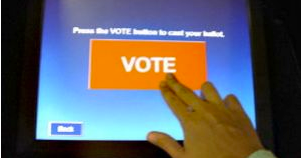By David Swedelson, Condo Lawyer and HOA attorney; Senior Partner at Swedelson Gottlieb, Community Association Attorneys
 Many California community associations have a difficult time achieving a quorum to hold board elections or to vote on other important association matters. Some condo and planned development homeowner associations have not been able to hold a vote for a new Board of Directors for many years because they require a quorum of at least 50% of the owners. And unlike many other community associations, they do not have a reduced quorum provision in their bylaws that allows them to hold the meeting and take the vote of the owners with 25% of the owners constituting a quorum. Some associations cannot even achieve a quorum with just 25% of the owners.
Many California community associations have a difficult time achieving a quorum to hold board elections or to vote on other important association matters. Some condo and planned development homeowner associations have not been able to hold a vote for a new Board of Directors for many years because they require a quorum of at least 50% of the owners. And unlike many other community associations, they do not have a reduced quorum provision in their bylaws that allows them to hold the meeting and take the vote of the owners with 25% of the owners constituting a quorum. Some associations cannot even achieve a quorum with just 25% of the owners.
While it’s easy to say that this is a problem that impacts community associations, the fact is that many people just don’t care enough to vote even when it comes to the elected officials that run their city, state or their country. Voter apathy is not just a community association problem. And that is too bad, as the right to vote is a privilege; it is how each citizen has a say in how our government is run.
Continue reading
 HOA Law Blog
HOA Law Blog



 CAI’s California Legislative Action Committee announced this week that it is sponsoring a bill that was introduced into the California Assembly, authored by assembly member Norma Torres, that would make electronic balloting or voting an option for California’s common interest developments. It is about time.
CAI’s California Legislative Action Committee announced this week that it is sponsoring a bill that was introduced into the California Assembly, authored by assembly member Norma Torres, that would make electronic balloting or voting an option for California’s common interest developments. It is about time.